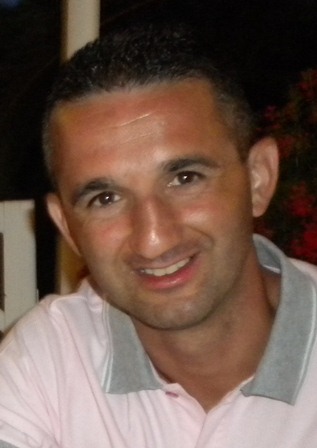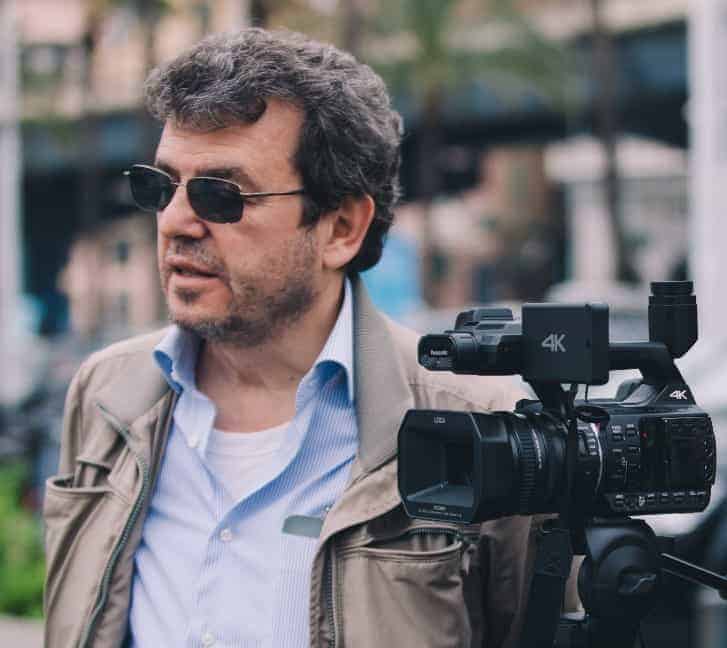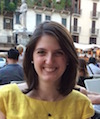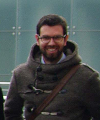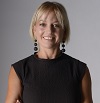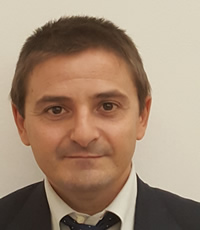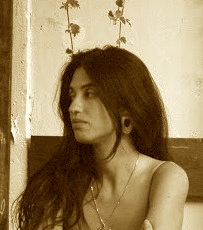Studying at the University of Verona
Here you can find information on the organisational aspects of the Programme, lecture timetables, learning activities and useful contact details for your time at the University, from enrolment to graduation.
Academic calendar
The academic calendar shows the deadlines and scheduled events that are relevant to students, teaching and technical-administrative staff of the University. Public holidays and University closures are also indicated. The academic year normally begins on 1 October each year and ends on 30 September of the following year.
Course calendar
The Academic Calendar sets out the degree programme lecture and exam timetables, as well as the relevant university closure dates..
| Period | From | To |
|---|---|---|
| Sem. 1A | Sep 24, 2018 | Nov 10, 2018 |
| Sem. 1B | Nov 19, 2018 | Jan 12, 2019 |
| Sem. 2A | Feb 18, 2019 | Mar 30, 2019 |
| Sem. 2B | Apr 8, 2019 | Jun 1, 2019 |
| Session | From | To |
|---|---|---|
| Sessione d'esame invernale | Jan 14, 2019 | Feb 16, 2019 |
| Sessione d'esame estiva (gli esami sono sospesi durante la sessione di laurea) | Jun 3, 2019 | Jul 27, 2019 |
| Sessione d'esame autunnale | Aug 26, 2019 | Sep 21, 2019 |
| Session | From | To |
|---|---|---|
| Sessione di laurea estiva | Jul 8, 2019 | Jul 13, 2019 |
| Sessione di laurea autunnale | Nov 4, 2019 | Nov 9, 2019 |
| Sessione di laurea invernale | Mar 30, 2020 | Apr 4, 2020 |
| Period | From | To |
|---|---|---|
| Festa di Ognissanti | Nov 1, 2018 | Nov 1, 2018 |
| Sospensione dell'attività didattica | Nov 2, 2018 | Nov 3, 2018 |
| Festa dell’Immacolata | Dec 8, 2018 | Dec 8, 2018 |
| Vacanze di Natale | Dec 24, 2018 | Jan 5, 2019 |
| Vacanze di Pasqua | Apr 19, 2019 | Apr 23, 2019 |
| Sospensione attività didattica | Apr 24, 2019 | Apr 27, 2019 |
| Festa della liberazione | Apr 25, 2019 | Apr 25, 2019 |
| Festa del lavoro | May 1, 2019 | May 1, 2019 |
| Festa del Santo Patrono | May 21, 2019 | May 21, 2019 |
| Festa della Repubblica | Jun 2, 2019 | Jun 2, 2019 |
| Vacanze Estive | Aug 12, 2019 | Aug 17, 2019 |
Exam calendar
Exam dates and rounds are managed by the relevant Culture and Civilisation Teaching and Student Services Unit.
To view all the exam sessions available, please use the Exam dashboard on ESSE3.
If you forgot your login details or have problems logging in, please contact the relevant IT HelpDesk, or check the login details recovery web page.
Should you have any doubts or questions, please check the Enrollment FAQs
Academic staff
 maurizio.boscaini@univr.it
maurizio.boscaini@univr.it
 paolamaria.caleffi@univr.it
paolamaria.caleffi@univr.it
 andrea.capuzzo@univr.it
andrea.capuzzo@univr.it
 paolodalben@tin.it
paolodalben@tin.it
 mila.dallapreda@univr.it
mila.dallapreda@univr.it
 ettore.deangeli@univr.it
ettore.deangeli@univr.it
 maxclaudiogallo@gmail.com
maxclaudiogallo@gmail.com

Mastrocinque Attilio
 attilio.mastrocinque@univr.it
attilio.mastrocinque@univr.it
 +39 045802 8386
+39 045802 8386
 marco.menato@univr.it
marco.menato@univr.it

Migliorati Lorenzo
 lorenzo.migliorati@univr.it
lorenzo.migliorati@univr.it
 045802 8135
045802 8135
 flavia.palma@univr.it
flavia.palma@univr.it
 alberto.scandola@univr.it
alberto.scandola@univr.it
Tani Stefano
 stefano.tani@univr.it
stefano.tani@univr.it
 +39 045802 8110
+39 045802 8110
 ivan.valbusa@univr.it
ivan.valbusa@univr.it
Study Plan
The Study Plan includes all modules, teaching and learning activities that each student will need to undertake during their time at the University.
Please select your Study Plan based on your enrollment year.
1° Year
| Modules | Credits | TAF | SSD |
|---|
2° Year activated in the A.Y. 2019/2020
| Modules | Credits | TAF | SSD |
|---|
3° Year activated in the A.Y. 2020/2021
| Modules | Credits | TAF | SSD |
|---|
| Modules | Credits | TAF | SSD |
|---|
| Modules | Credits | TAF | SSD |
|---|
| Modules | Credits | TAF | SSD |
|---|
| Modules | Credits | TAF | SSD |
|---|
Legend | Type of training activity (TTA)
TAF (Type of Educational Activity) All courses and activities are classified into different types of educational activities, indicated by a letter.
Type D and Type F activities
| years | Modules | TAF | Teacher |
|---|---|---|---|
| 1° 2° 3° | Felicita' pubblica. genealogie, percorsi, prospettive | F |
Olivia Guaraldo
(Coordinator)
|
| 1° 2° 3° | Laboratory of Theatrical Criticism | F |
Simona Brunetti
(Coordinator)
|
| 1° 2° 3° | Univero’ 2018 | F |
Tiziana Franco
(Coordinator)
|
| years | Modules | TAF | Teacher |
|---|---|---|---|
| 1° 2° 3° | Crime, Justice and the Media | F |
Maurizio Corte
(Coordinator)
|
| 1° 2° 3° | Felicita' pubblica. genealogie, percorsi, prospettive | F |
Olivia Guaraldo
(Coordinator)
|
| 1° 2° 3° | Laboratory of Theatrical Criticism | F |
Simona Brunetti
(Coordinator)
|
| 1° 2° 3° | Theatre with wheels - conferences | F |
Simona Brunetti
(Coordinator)
|
| years | Modules | TAF | Teacher |
|---|---|---|---|
| 1° 2° 3° | Felicita' pubblica. genealogie, percorsi, prospettive | F |
Olivia Guaraldo
(Coordinator)
|
| 1° 2° 3° | Data elaboration laboratory | F |
Maurizio Boscaini
(Coordinator)
|
| 1° 2° 3° | The Role of Psychology in Human Resources: Professional interview | F |
Riccardo Sartori
(Coordinator)
|
| 1° 2° 3° | Psychology and communication: Innovation and creativity processes in the workplace | F |
Riccardo Sartori
(Coordinator)
|
| 1° 2° 3° | Recording the theatrical ephemeral | F |
Simona Brunetti
(Coordinator)
|
| 1° 2° 3° | Theatre with wheels | F |
Simona Brunetti
(Coordinator)
|
| years | Modules | TAF | Teacher |
|---|---|---|---|
| 1° 2° 3° | Ciclo di incontri: Europa. Una sfida tra passato e futuro | F |
Renato Camurri
(Coordinator)
|
| 1° 2° 3° | Felicita' pubblica. genealogie, percorsi, prospettive | F |
Olivia Guaraldo
(Coordinator)
|
| 1° 2° 3° | Data elaboration laboratory | F |
Maurizio Boscaini
(Coordinator)
|
| 1° 2° 3° | Workshop on comics | F |
Simona Brunetti
(Coordinator)
|
| 1° 2° 3° | Laboratory of radio languages | F |
Tiziana Cavallo
(Coordinator)
|
| 1° 2° 3° | Creative Writing Laboratory | F |
Flavia Palma
(Coordinator)
|
| 1° 2° 3° | Journalistic Writing Laboratory | F |
Andrea Capuzzo
(Coordinator)
|
| 1° 2° 3° | The Role of Psychology in Human Resources: Professional interview | F |
Riccardo Sartori
(Coordinator)
|
| 1° 2° 3° | Psychology and communication: Innovation and creativity processes in the workplace | F |
Riccardo Sartori
(Coordinator)
|
| 1° 2° 3° | Recording the theatrical ephemeral | F |
Simona Brunetti
(Coordinator)
|
| 1° 2° 3° | Theatre with wheels | F |
Simona Brunetti
(Coordinator)
|
Journalistic Writing Laboratory (2018/2019)
Teaching code
4S007366
Teacher
Coordinator
Credits
3
Language
Italian
Scientific Disciplinary Sector (SSD)
NN - -
Period
Sem. 2B dal Apr 8, 2019 al Jun 1, 2019.
Learning outcomes
The Journalistic Writing Laboratory is dedicated to the newspaper article in its different forms. At the end of the lessons the students will become familiar with the different types of journalistic prose (news, investigation, interview, reportage, article of custom, editorial, etc.) and will be able to write an original script that meets the requirements and standards of the text genre.
Program
LABORATORY ARGUMENT
Write a newspaper article.
CONTENTS
1. Analysis of the different types of journalistic article (news, report, interview, reportage, article of custom, editorial, etc.)
2. Identification of communicative, linguistic and expressive techniques adapted to the various types of journalistic writing.
EDUCATIONAL MODE
Lectures and exercises through written works.
The reading and the guided analysis of significant examples of journalistic prose will be accompanied by the composition and correction of works written by the students. The texts used will be uploaded to the e-learning platform (or, if necessary, photocopied). Bibliographical references will be communicated from time to time in class.
N.B. The course is reserved for attending students only. To take the final exam you will need to have attended at least seven out of nine lessons. The presence signature will be required.
| Author | Title | Publishing house | Year | ISBN | Notes |
|---|---|---|---|---|---|
| Paolo Murialdi | Come si legge un giornale | Laterza | 1981 |
Examination Methods
The exam is reserved for attending students only and will consist of a written test.
Students must write a journalistic article of a specific type starting from one of the tracks proposed by the teacher.
Career prospects
Module/Programme news
News for students
There you will find information, resources and services useful during your time at the University (Student’s exam record, your study plan on ESSE3, Distance Learning courses, university email account, office forms, administrative procedures, etc.). You can log into MyUnivr with your GIA login details: only in this way will you be able to receive notification of all the notices from your teachers and your secretariat via email and soon also via the Univr app.
Graduation
Documents
| Title | Info File |
|---|---|
|
|
pdf, it, 263 KB, 09/02/22 |
List of theses and work experience proposals
| theses proposals | Research area |
|---|---|
| Laureandi Scienze della Comunicazione: vademecum | Various topics |
| Stage | Research area |
|---|---|
| L'iter del libro in biblioteca | Various topics |
| Proposte stages - Centro di ricerca Skenè | Various topics |






